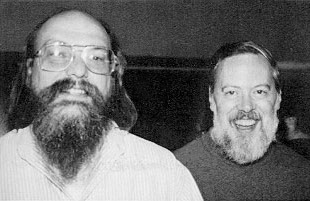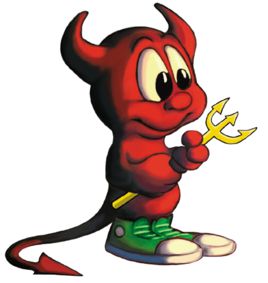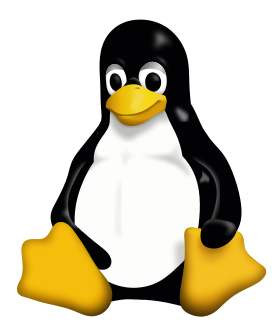Unix: Difference between revisions
(Created page with "Unix was created in the 1960s at Bell Laboratories in New Jersey. File: Ken_n_dennis.jpg") |
No edit summary |
||
| Line 2: | Line 2: | ||
[[File: Ken_n_dennis.jpg]] | [[File: Ken_n_dennis.jpg]] | ||
Mac OS X, which based on BSD which is from Berkley, CA 1977. 😈 | |||
[[File: BSD.jpg]] | |||
Linux, which is from a guy named Linux Torvalds in Finland 1991. 🐧 | |||
[[File: Tux.png]] | |||
* Start w/ History of Unix... | |||
- Unix started a Bell Labs, the US, in 1960s | |||
- Mac OS X, which based on BSD which is from Berkley, CA 1977 | |||
- Linux, which is from a guy named Linux Torvalds in Finland 1991 | |||
- but...what made BSD possible and Linux possible, was the work of Richard Staltzman at MIT who create a set of programs and libraries called GNU. 1983 | |||
- but more importantly Staltzman introduce the idea of free and open software, GNU licience | |||
- this is contrary to the idea of propriatiary software like adobe design software, which you can not read or change the source code. | |||
* Most all software today still uses at least pieces of these early libraries and programs, but today wil will investigate them on a much lower level, and for fun in the context of emoji. | |||
- There is a window into this lower level of software via a program called the Terminal on most computers. | |||
- | |||
Revision as of 06:51, 17 September 2017
Unix was created in the 1960s at Bell Laboratories in New Jersey.
Mac OS X, which based on BSD which is from Berkley, CA 1977. 😈
Linux, which is from a guy named Linux Torvalds in Finland 1991. 🐧
- Start w/ History of Unix...
- Unix started a Bell Labs, the US, in 1960s - Mac OS X, which based on BSD which is from Berkley, CA 1977 - Linux, which is from a guy named Linux Torvalds in Finland 1991 - but...what made BSD possible and Linux possible, was the work of Richard Staltzman at MIT who create a set of programs and libraries called GNU. 1983 - but more importantly Staltzman introduce the idea of free and open software, GNU licience - this is contrary to the idea of propriatiary software like adobe design software, which you can not read or change the source code.
- Most all software today still uses at least pieces of these early libraries and programs, but today wil will investigate them on a much lower level, and for fun in the context of emoji.
- There is a window into this lower level of software via a program called the Terminal on most computers. -


